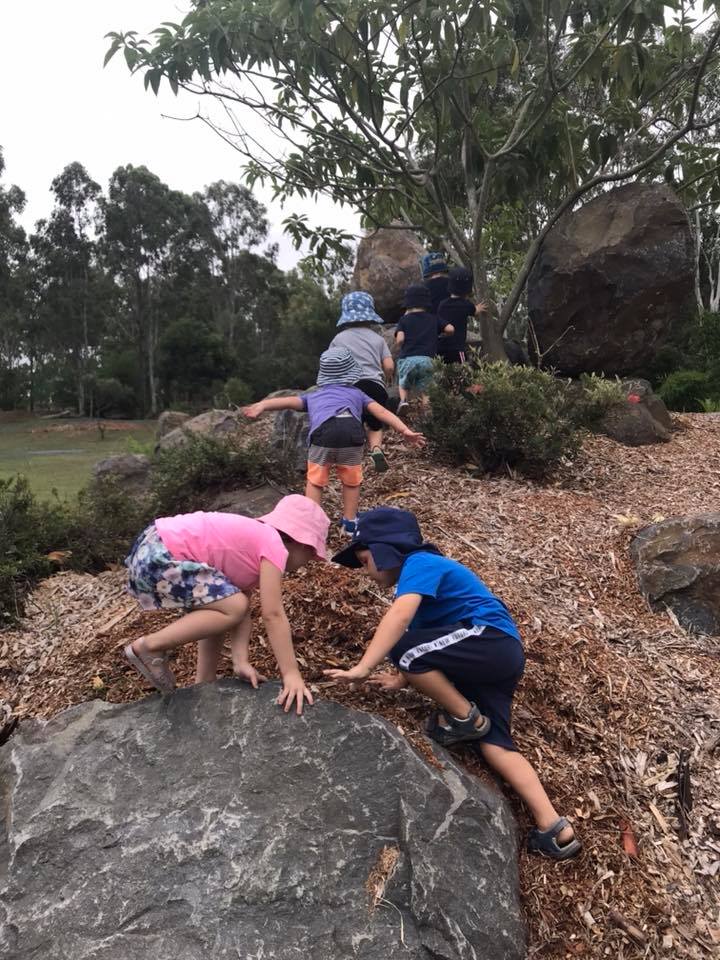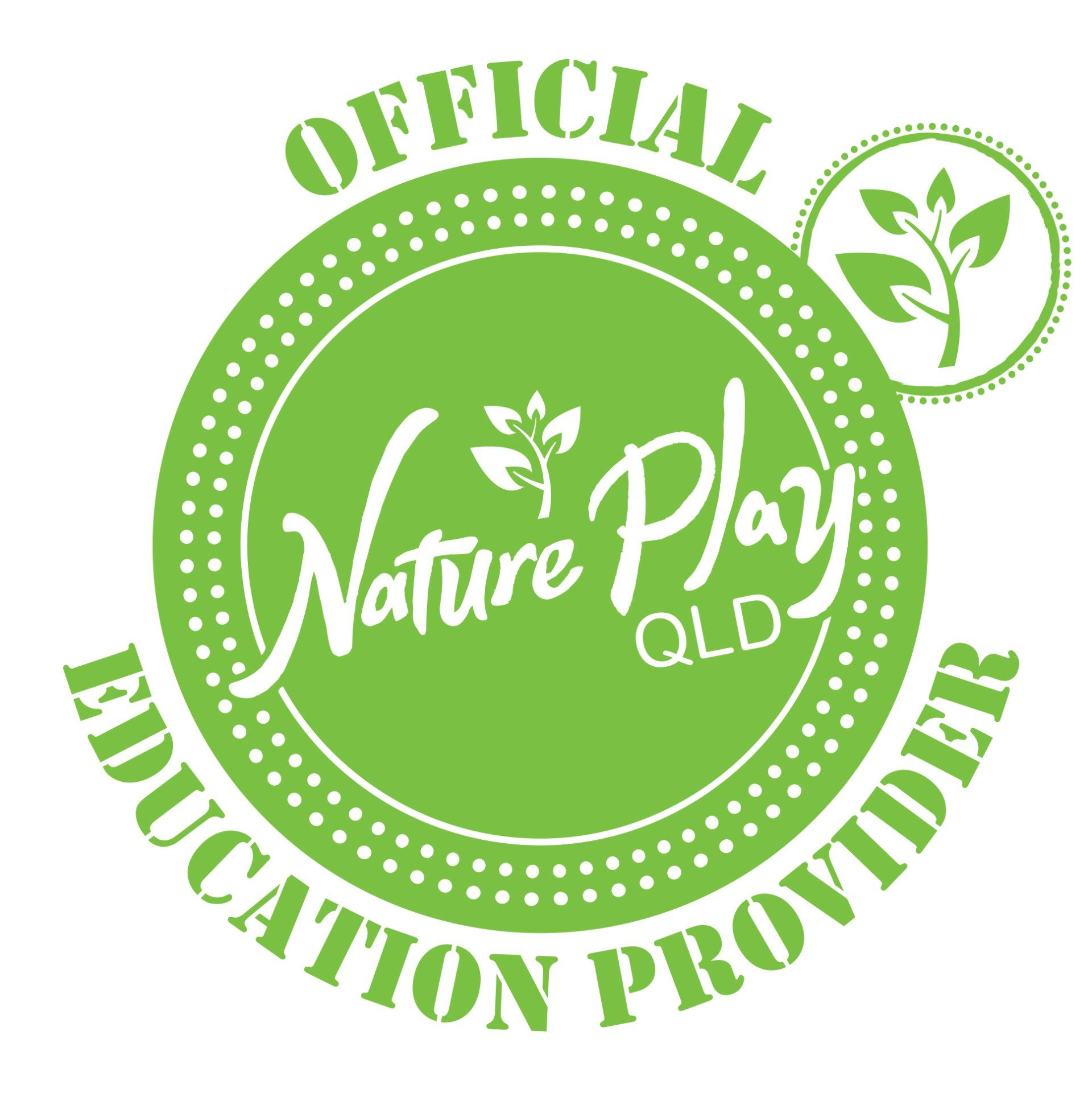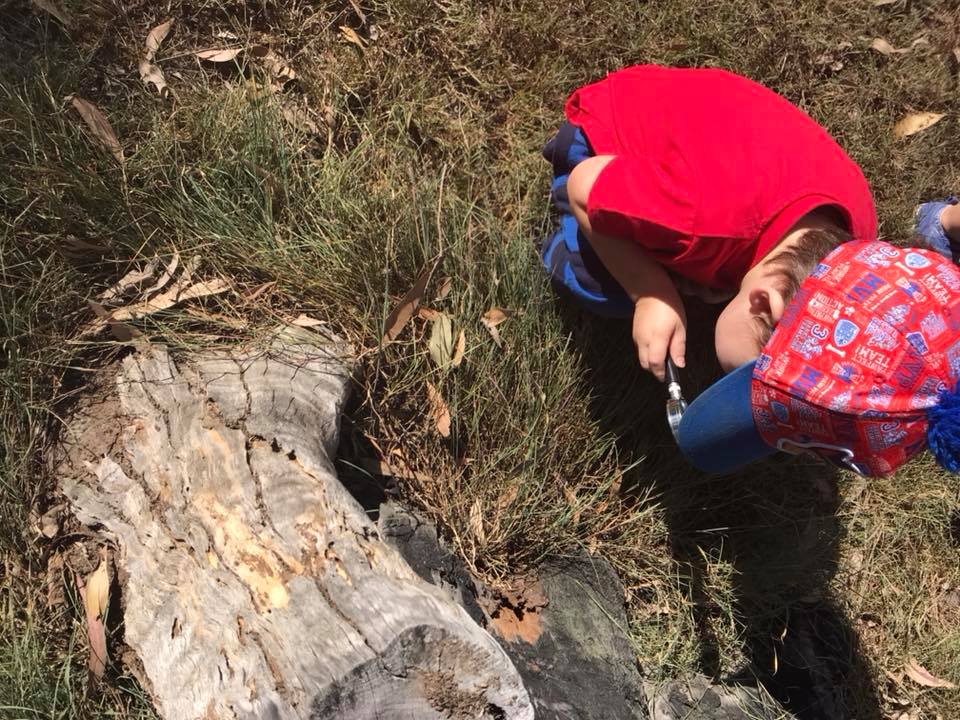Rich and meaningful outdoor experiences
Centre Operating
and
Session Hours
-
Read More
The Queensland Government Approved Kindergarten Program is provided for eligible children the year prior to Prep. Children must attend a minimum of two day per week.
Programs for other age groups are guided by the EYLF Principles and Learning Outcomes.
The Centre is open for 50 weeks each year, closing for two weeks over the Christmas / New Year period. No fees are charged for the 2 week Christmas closure.
The Centre is closed on all Public Holidays. Make-up days are offered for bookings falling on a public holiday, subject to availability.
Late Fees apply for children collected after their booked session time has ended. The fee is applied per child every 1 minutes after your child's session ends.
Signing your child in and out each day is vital. We use a digital system and any person delivering or collecting your child from care will need to create their own password.
Monday to Friday
6:30am to 6:00pm
Sessions
7:00am - 4:00pm (9hrs) - all ages
8:00am - 5:00pm (9hrs) - all ages
7:00am - 5:00pm (10hrs) - 5 day bookings only, all ages
6:30am - 6:00pm (11.5hrs) - all ages
Johanna Street ELC uses the programming tool Storypark, allowing Educators to keep families up-to-date on a daily basis.
The large grounds are utilised for our
Bush Kindy program including outdoor cooking experiences, picnics, outdoor exploration, education and play. A dry creek bed comes alive when water from a damn is pumped into it for water/mud play. The
creative zone facilitates outdoor cooking, construction with and without tools, imaginative play, climbing trees and playground equipment. The beautiful
garden room combines a large covered area with catering facilities and shadded seating amongst thick natural foliage. A
vegie garden,
small sports field
and an
adventure playground are also featured.
Early Years Learning Framework
Learning Outcomes
Outcome 1: Children Have a Strong Sense of Identity
• Children feel safe, secure, and supported
• Children develop their emerging autonomy, inter-dependence, resilience & sense of agency
• Children develop knowledgeable and confident self identities
• Children learn to interact in relation to others with care, empathy and respect
-
Read More
Outcome 2: Children Are Connected With and Contribute To Their World
• 2.1 Children develop a sense of belonging to groups and communities and an understanding of the reciprocal rights and responsibilities necessary for active community participation
• 2.2 Children respond to diversity with respect
• 2.3 Children become aware of fairness
• 2.4 Children become socially responsible and show respect for the environment
Outcome 3: Children Have a Strong Sense of Wellbeing
• 3.1 Children become strong in their social and emotional wellbeing
• 3.2 Children take increasing responsibility for their own health and physical wellbeing
Outcome 4: Children Are Confident and Involved Learners
• 4.1 Children develop dispositions for learning such as curiosity, cooperation, confidence, creativity, commitment, enthusiasm, persistence, imagination and reflexivity
• 4.2 Children develop a range of skills and processes such as problem solving, enquiry, experimentation, hypothesising, researching and investigating
• 4.3 Children transfer and adapt what they have learned from one context to another
• 4.4 Children resource their own learning through connecting with people, place, technologies and natural and processed materials
Outcome 5: Children Are Effective Communicators
• 5.1 Children interact verbally and non-verbally with others for a range of purposes
• 5.2 Children engage with a range of texts and gain meaning from these texts
• 5.3 Children express ideas and make meaning using a range of media
• 5.4 Children begin to understand how symbols and pattern systems work
• 5.5 Children use information and communication technologies to access information, investigate ideas and represent their thinking

At Johanna Street ELC our Kindergarten program is based on the Queensland Kindergarten Learning Guidelines. Our Kindergarten Teachers' qualifications meet the Queensland Government Approved Kindergarten Program requirements.
Kindergarten Eligibility & Hours of Operation
What is the Queensland Government Approved Kindergarten Program?
Approved kindergarten programs are designed to meet government guidelines to support children's participation in quality early childhood education the year before beginning Prep.
The program must be:
-
Read More
• Offered to children in the year prior to Prep
• Operating for 15 hours per week, for 40 weeks per year
• Delivered by a four year qualified early childhood teacher
• Based on the Queensland Kindergarten Learning Guidelines
Who is eligible for the Kindergarten Program?
A child must have either turned 4 between July and December in the year prior to starting Kindergarten or be turning 4 between January and June of the year they attend Kindergarten, e.g. a child born between 1 July 2019 & 30 June 2020 will be eligible to attend the 2024 Kindergarten program. Children must also be enrolled in the centre for at least 2 days per week to be eligible for the program. You can also use the link below for the Queensland Government Kindy Calculator to work out when your child will be eligible.
1 July 2019 to 30 June 2020 = 2024
Hours of Operation
Our program operates Monday to Friday from 8:30am - 4:00pm. The centre is open from 6:30am - 6:00pm and although it is not mandatory for children to attend for the entire day, it is strongly recommended that all kindergarten children attend at least two days per week from 8:30am - 4:00pm to ensure they are receiving the Kindergarten Program as intended.
Our Focus
We focus on five areas of children’s development:
• Identity
• Connectedness (to others and the environment)
• Wellbeing (their own physical health as well as caring for others)
• Active Learning
• Communicating
-
Read More
These areas help children to prepare as much as possible for what will be expected of them at school.
Individual planning, with small group and whole group activities, to ensure all areas are developed in different ways and situations.
Active learning, about the more specific topics that children should know for school: Numbers, Letters (the names and sounds), Shapes, Colours, and the ability to write their own names.
Self-help skills for children to be able to look after themselves at school: looking after their shoes, hat, jumpers, lunch boxes etc, dressing themselves, independence with toileting skills, building confidence to voice their own needs, thoughts and feelings, managing their own emotions, and developing perseverance when handling challenges.



